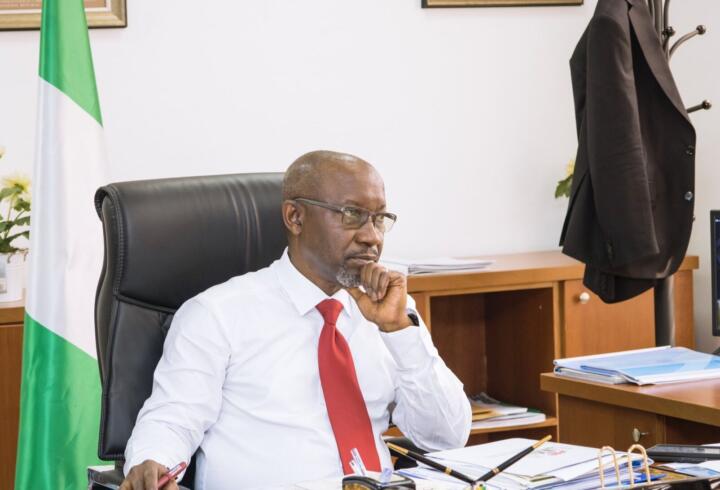InfoStride News reported that Nigeria’s Gas Minister, Ekperikpe Ekpo, has set a target for the construction of the Nigeria-Morocco gas pipeline in 2024. This announcement came during a meeting with a delegation of envoys from the Kingdom of Morocco, led by its Ambassador to Nigeria, Moha Ou Ali Tagma, on Monday, November 27, in Abuja.
Ekpo expressed Nigeria’s readiness and interest in the project, emphasizing its significance as critical infrastructure spanning 5,600 kilometers across 13 African countries: Nigeria, Benin, Togo, Ghana, Côte d’Ivoire, Liberia, Sierra Leone, Guinea, Guinea-Bissau, The Gambia, Senegal, Mauritania, and Morocco. Once completed, the pipeline aims to transport gas from Nigeria to various West African nations, linking through Morocco and extending to Europe.
The Nigerian National Petroleum Company Limited (NNPCL) highlighted the project’s advantages in September 2023, emphasizing its potential to create wealth, improve living standards, boost regional economic integration, combat desertification, and notably reduce carbon emissions. Mele Kyari, the Group Chief Executive Officer of the NNPCL, affirmed the company’s commitment to ensuring a consistent gas supply and facilitating necessary infrastructure.

The pipeline’s route begins at Brass Island in Nigeria, extending to the northern region of Morocco, where it will connect with the existing Maghreb European Pipeline originating from Algeria and extending to Spain. During the meeting with the Moroccan Ambassador, Ekpo expressed optimism about concluding the project by 2024, highlighting discussions held during the West African Gas Pipeline (WAGP) Committee Parties meeting.
However, some analysts have raised concerns about the viability of the Nigeria-Morocco gas pipeline project. One major point of contention is the project’s history of delays, with the Memorandum of Understanding (MoU) signed in December 2016 and June 2018, and subsequently renewed on September 15, 2022.
In April of the same year, oil and gas analyst Dan D Kunle voiced skepticism about the project’s economic viability within Nigeria’s current gas industry landscape. He stressed the need for comprehensive studies from top global financial institutions to assess economic impact, financial returns, and agreements with countries along the pipeline route. Without such evaluations, the funding for the project remains uncertain.
In response, Kyari expressed confidence in securing funding for the project. Nevertheless, Kunle suggested an alternative approach, proposing that Nigeria and Morocco consider investing in LNG plants, regasification facilities in Moroccan ports, and LNG vessel carriers. This alternative, he argued, offers greater flexibility, access to diverse markets, and potential for broader trade in liquid fuels compared to a pipeline with restricted routes.
As discussions and evaluations continue, the Nigeria-Morocco gas pipeline project remains a topic of both optimism and skepticism, with stakeholders navigating challenges and considering alternative strategies for maximizing economic benefits.
Support InfoStride News' Credible Journalism: Only credible journalism can guarantee a fair, accountable and transparent society, including democracy and government. It involves a lot of efforts and money. We need your support. Click here to Donate
